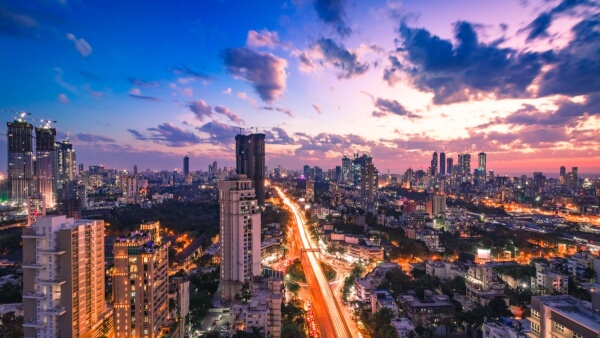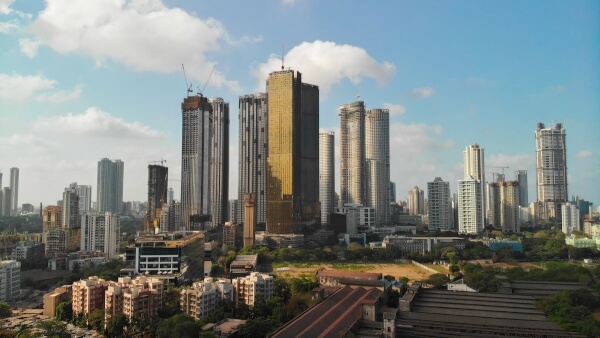Taxes for selling property in India from the US: Complete guide
Guide for NRIs: US citizen selling property in India tax implications, capital gains, TDS deductions, required documents filing timelines, and examples.

As its industry and economy become stronger, India is becoming an increasingly popular destination for expats. The diversity of the country and population is dizzying, and it offers a drastically different way of life from that in the western countries. If that sounds appealing, then join the increasing numbers of American citizens who are making their way to this fascinating and ever-changing sub-continent.
Most westerners are required to get an e-TV (tourist visa) to enter India. To work there, an employment visa is required. To apply for one, you need to have confirmed employment with an Indian company, or be intending to do voluntary work. If you are staying in India for more than 180 days you will need to register at the Foreigners’ Regional Registration Office (FRRO) within 14 days of arriving in the country. For more information on this and other visa requirements, contact the High Commission of India in London.
Although much cheaper than America, the cost of living in some of the most popular destinations for expats can be surprisingly high. Accommodation in cities like New Delhi and Mumbai can be quite astonishing for arrivals who are expecting to live like royalty on a small amount of money.
If you are able, try and negotiate a housing allowance with your salary - this is likely to be your biggest expense. India is an enormous country of course, and prices vary hugely depending on location. For detailed information, take a look at the city you are interested in on the figure-crunching website Numbeo.
Most Indian banks offer a “non-resident” account for expats who work in India. Many international banks also have a presence in India, including HSBC, Citibank and Royal Bank of Scotland, so it is worth enquiring with your U.S. bank about their international banking options.
Once you have a financial presence in India, register with Wise in order to transfer money between your U.S. and Indian accounts. You can send money securely between countries and save on what your bank will charge.
With a sixth of the world’s population, one of the world’s largest economies, and an increasingly educated population, competition for decent employment in India is fierce. Indian companies are keen to employ and retain foreign employees however. English is the business lingua franca, which - along with the historic relationship between India and the UK - gives English speakers some advantage.
India’s huge economic growth in the last decade means there are opportunities in pretty much every sector and industry, but engineering, science, mining and technology are particular growth areas. Finance, media, telecommunications are also growing fast. Personal networks are important, and a lot of vacancies are filled through referral and word of mouth. Relationship building in your particular area should be a matter of priority on arrival - find out how to access your professional networks and relevant expat forums and get involved.
Good quality accommodation at a reasonable price is at a premium in the more popular areas, so be prepared to face competition when looking to rent. A better option is to try and negotiate your contract so that your employer helps with accommodation. If this isn’t an option, then engage the services of a bilingual (English/Hindi) rental agent. Make sure you insist on all the paperwork being fully above board - you will need it for administrative purposes, and many landlords prefer a more “informal” arrangement.
Expat children normally attend one of India’s many international schools, but competition for places at the most popular ones can be stiff. Fees can be up to £17,000 in A-Level years - but this is very much the top end of the scale. A list of some of the most highly-rated ones can be found here.
Indian medical staff are generally well-trained and speak English - however those within the public healthcare system are often working with old equipment in understaffed and overcrowded hospitals. Most expats prefer to take out comprehensive private health insurance, giving them access to hospitals that are more on a par with those in Europe.
Before moving abroad, take a look at our handy time-sensitive checklist to remind yourself of everything you need to do to get organised.
*Please see terms of use and product availability for your region or visit Wise fees and pricing for the most up to date pricing and fee information.
This publication is provided for general information purposes and does not constitute legal, tax or other professional advice from Wise Payments Limited or its subsidiaries and its affiliates, and it is not intended as a substitute for obtaining advice from a financial advisor or any other professional.
We make no representations, warranties or guarantees, whether expressed or implied, that the content in the publication is accurate, complete or up to date.

Guide for NRIs: US citizen selling property in India tax implications, capital gains, TDS deductions, required documents filing timelines, and examples.

What taxes do you need to pay when selling inherited property in India from the US? Have a look at our guide to learn all about this topic.

Want to learn about property taxes in India? This guide covers types of property taxes and how they are calculated to help you navigate the process.

A handy guide for understanding the job options in India for foreigners and expats.

India is an ethnically diverse and culturally vibrant country. If you’re thinking about moving to India you'll probably need to find a job, and with a large...

India is a country packed with opportunities - so if you live or work there, and plan to stay for the long term, then seeking Indian citizenship makes a lot...